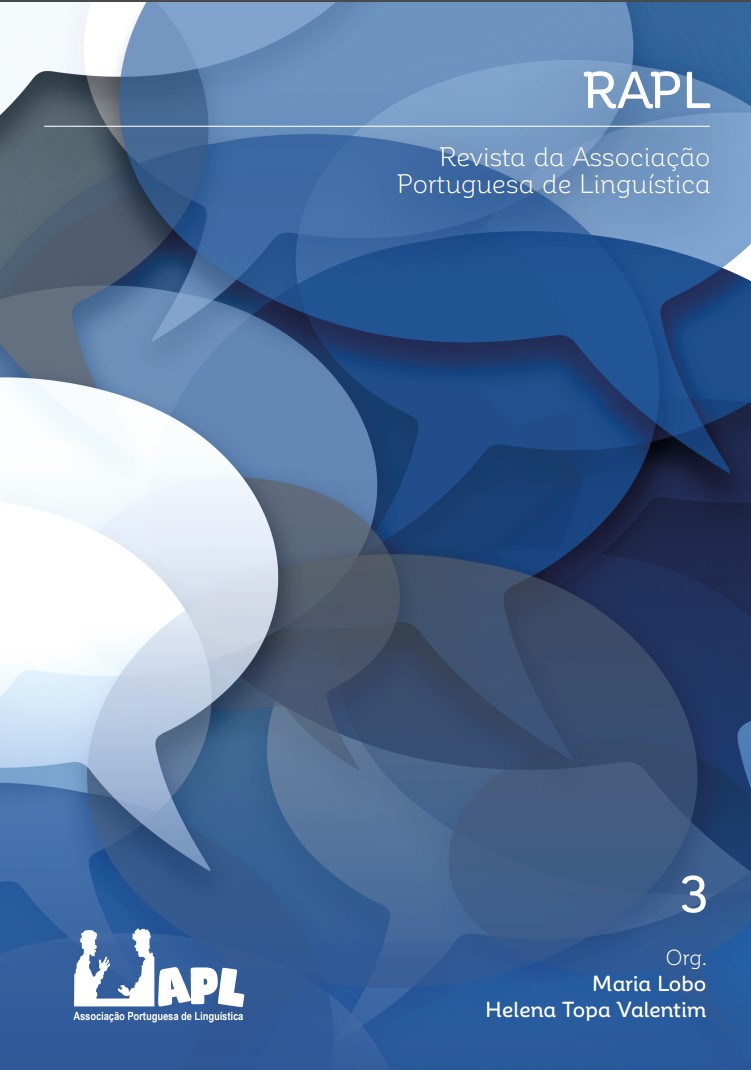Interpretation of anaphoric and cataphoric subject pronouns by L2 Portuguese speakers: effects of native language
DOI:
https://doi.org/10.26334/2183-9077/rapln3ano2017a9Keywords:
L2, Portuguese, subject pronoun, anaphora resolutionAbstract
This paper investigates the interpretation preferences for null and overt subject pronouns in anaphoric and cataphoric contexts in L2 Portuguese and, specifically, whether: i) the L1 of the participants (Italian and German) influences their interpretation; ii) there is evidence of development; iii) there are differences determined by pronoun type and context. The results of a picture selection task administered to the L2 groups and a group of L1 adults show that the distinction between null and overt subjects is established early; learners distinguish anaphoric and cataphoric contexts and their performance may be influenced by processing constraints; there is some development from beginner to advanced level, visible in the Italian group mainly for overt pronouns; and the proximity of the L1 appears to facilitate L2 acquisition.
Downloads
Downloads
Published
How to Cite
Issue
Section
License
Copyright (c) 2017 Maria Lobo, Ana Madeira, Carolina Silva

This work is licensed under a Creative Commons Attribution-NonCommercial-ShareAlike 4.0 International License.
Authors retain copyright and concede to the journal the right of first publication. The articles are simultaneously licensed under the Creative Commons Attribution License, which allows sharing of the work with an acknowledgement of authorship and initial publication in this journal.
The authors have permission to make the version of the text published in RAPL available in institutional repositories or other platforms for the distribution of academic papers (e.g., ResearchGate).




